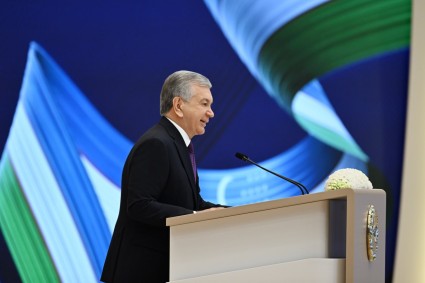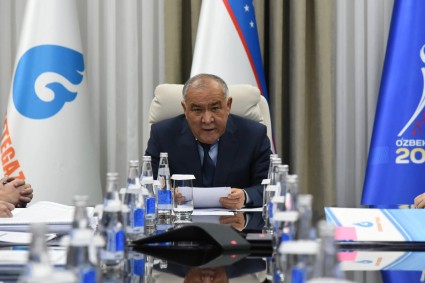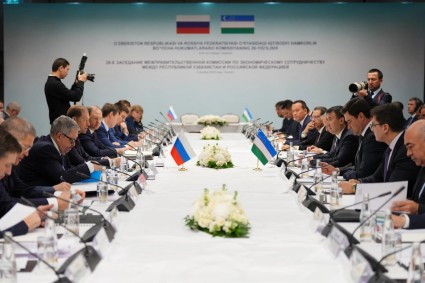On the sidelines of the International Forum on Multimodal Transportation on Wednesday, the Transport Minister Ilkhom Makhkamov spoke about the need for fast-track development of the CASCA+ transport corridor's infrastructure to ensure growth in freight forwarding between China and Europe.
CASCA+ is a joint initiative of the national railways of Azerbaijan, Georgia, Kyrgyzstan, Turkmenistan, Turkey, and Uzbekistan. This route currently covers three regions: Central Asia (Kyrgyzstan, Uzbekistan, and Turkmenistan), the South Caucasus (Azerbaijan and Georgia), and Turkey. The "+" sign in the route's name signifies its readiness to accept new potential participants, whose ultimate goal is to connect Southeast Asian countries, particularly China, with Europe.
According to the minister, the main China-Europe traffic currently passes through the Middle Corridor (Trans-Caspian Route), but problematic sections remain.
"The main routes between China and Europe are through the Middle Corridor, the corridor included in CASCA+. However, there are bottlenecks and problem areas along this route—for example, shipping across the Caspian Sea: the water level in the Caspian Sea is falling, and there aren't enough ferries," said Makhkamov.
He noted that growing freight traffic required infrastructure development in advance to avoid overloading the corridor.
"While increasing freight traffic along the Middle Corridor, we must implement infrastructure projects in advance and prepare for it. Our esteemed president's initiative is to resolve bottlenecks and implement infrastructure projects jointly with participating countries before construction is completed," the minister emphasized.
A report by Uzbekistan 24 noted that, according to CASCA+ estimates, Uzbekistan's freight volume in 2024 reached 1 million tons—five times more than in 2019.
Uzbekistan's GDP has been growing at an average annual rate of 6-6.5% in recent years.
"This growth rate naturally indicates an increase in shipping volumes. Therefore, it is crucial for Uzbek exporters to have access to affordable and alternative logistics routes, and the Middle Corridor plays a significant role in this. Furthermore, the CASCA+ project includes Turkish seaports, which means access not only to European markets, but also to African and Middle Eastern markets," the report states.
Meanwhile, the transport ministers of the CASCA+ participating countries emphasized that the corridor remains facing significant challenges. Following the completion of the China-Kyrgyzstan-Uzbekistan railway project, the CASCA+ infrastructure may not be able to handle the additional cargo flow. The situation is also affected by the ongoing shallowing of the Caspian Sea, which reduces ship cargo capacity.
To this end, the minister proposed to:
- form a working group at the level of deputy transport ministers;
- draft a long-term program to ensure uninterrupted freight movement between East and West;
- provide preferential tariffs to exporters using the CASCA+ route.
Hikmatulla Rakhmetov, First Deputy Head of Uzbekistan Railways, previously announced that construction of the China-Kyrgyzstan-Uzbekistan railway is progressing ahead of schedule and could be completed in four years instead of six.












